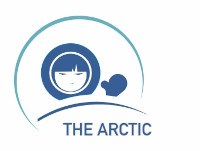The Arctic, located at the northern most part of the Earth consists of a vast, ice covered ocean, surrounded by treeless permafrost. The unique and very harsh climate makes it difficult for just any types of vessels to carry out the shipping operations. Only sophisticated icebreakers are able to face the research challenges in the Arctic region.
Modern research vessels that are capable of penetrating into the central Arctic or sail through ice covered waters are rare. Technical challenges that occur along with decreasing Arctic ice cap, include construction of multi – purpose research vessels that are able to sail through the Arctic region as well as through the open waters in all seasons.
In May 2005 the German Research Foundation evaluated the Aurora Borealis Project which included the recommendation for the construction of the research icebreaker that would be capable of conducting operations in the Arctic and Antarctic ice covered waters.
Aurora Borealis, without a doubt, is technically unique. It was designed as a combination of heavy ice breaker, a deep drilling ship and research vessel for various purposes.
It is capable of conducting all kinds of shipping operations, to include commercial, offshore and scientific expeditions, in both Polar Regions as well as in the open waters. Advanced technology makes Aurora the only vessel of its kind available worldwide.
The vessel is almost 200 meters long with molded breadth of 49 meters and the maximum draught reaching up to 13 meters. In the open oceans Aurora is capable of sailing with up to 16 knots speed while the cruising speed in the open waters would reach up to 12 knots.
The icebreaker was constructed as diesel – electric with 81 MW propulsion power. It is equipped with advanced ice – forecasting system and the multiple helicopter support, mission specific laboratories and dynamic positioning system. What is more, it is the first ice breaker to be equipped with two moon polls, 7 x 7 meters each, one for deep sea drilling and one for deploying other scientific equipment.
Various economical, political and environmental changes occurring in the Arctic make it a subject of very intense scientific debate and investigation. Europe has particular interest in understanding those changes as many of its nations reach to high north latitudes. What is more, Europe depends on Arctic natural living and non – living resources which sustainable exploration and exploitation is a necessity.
Aurora Borealis is included in the priority list of the European Commission´s ´European Strategy Forum on Research Infrastructures´ and highlighted in European Commission´s Arctic Communication. The project is financed by the European Commission under 7th Framework Program and managed by the European Science Foundation and Alfred Wegener Institute. The strategic legal, scientific, financial and governance frameworks for the vessel will be released at the end of 2012.







